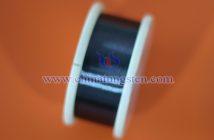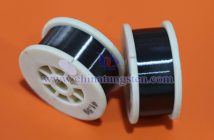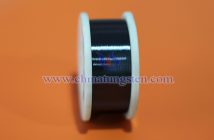Similar to tungsten-cobalt and tungsten-titanium-cobalt alloys, tungsten-titanium-tantalum (niobium)-cobalt alloys are widely used hard alloys. Due to their excellent physicochemical properties and strong versatility, they are also known as universal hard alloys or all-purpose hard alloys.

From a chemical composition perspective, YW-class tungsten carbide is composed of tungsten carbide (WC), titanium carbide (TiC), tantalum carbide (TaC) or niobium carbide (NbC), and cobalt (Co). Their grades are designated with the code YW (derived from the first letters of the Chinese pinyin for "hard" and "universal"), followed by a sequence number, such as YW1 or YW2. Note: The addition of TaC or NbC to tungsten-titanium-cobalt alloys aims to refine grain size, enhancing the alloy's bending resistance, impact resistance, high-temperature hardness, and high-temperature strength.

From a physicochemical properties standpoint, YW-class tungsten carbide combines the characteristics of WC, TiC, TaC (NbC), and Co, featuring high hardness, strength, red hardness, wear resistance, large elastic modulus, strong oxidation resistance, low linear expansion coefficient, and excellent toughness. Note: The specific physical and mechanical properties of the alloy are closely related to its chemical composition. For instance, YW1 contains 84-85% WC, 6% TiC, 3-4% TaC, and 6% Co, with a density of 12.6-13.5 g/cm3, hardness of approximately 91.5 HRA, and strength of about 1,177 MPa. YW2 contains 82-83% WC, 6% TiC, 3-4% TaC, and 8% Co, with a density of 12.4-13.5 g/cm3, hardness of approximately 90.5 HRA, and strength of about 1,324 MPa.
In terms of applications, YW-class tungsten carbide is suitable for the semi-finishing of cold hard cast iron, non-ferrous metals, and alloys, as well as the semi-finishing and finishing of high-manganese steel, quenched steel, alloy steel, and heat-resistant alloy steel.



